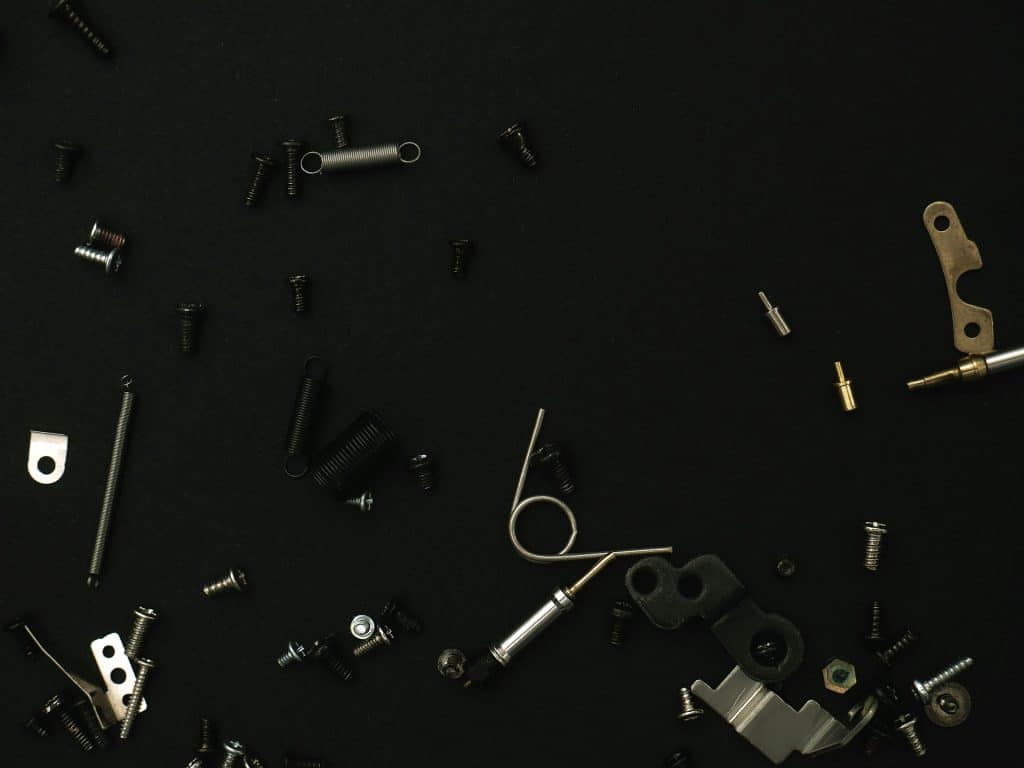If you’re looking for a strong, secure way to fasten materials to concrete, self-drilling concrete screws are an excellent option. These screws are designed to drill their own holes as they are driven into the concrete, which simplifies the installation process and ensures a tight, secure fit. Whether you’re working on a construction project or a DIY home improvement task, self-drilling concrete screws are a reliable and effective choice.
As a trusted wholesale distributor for over 65 years, Fastening Specialists is your go-to source for all your fastening needs. We specialize in providing high-quality fasteners for a wide range of industries and applications, and our selection of self-drilling concrete screws is no exception. Our experts can help you choose the right size, material, and coating for your specific project, ensuring that you get the best possible results.
When you choose Fastening Specialists for your self-drilling concrete screws, you can trust that you’re getting the best in product value, insight, and code expertise. We provide fast, reliable order fulfillment and exceptional customer service, so you can get the products you need when you need them. And as always, it’s important to check with local building codes and engineers for correct usage instructions. The team at Fastening Specialists is always available to provide advice and best use-cases, so don’t hesitate to reach out if you have any questions.
Understanding Self Drilling Concrete Screws
When it comes to fastening materials to concrete, self-drilling concrete screws are a popular and efficient option. These screws are designed to drill their own hole into concrete, eliminating the need for a separate drill bit and pilot hole. In this section, we will discuss the types of concrete screws available and the material and strength properties to consider when selecting the right screw for your project.
Types of Concrete Screws
There are several types of self-drilling concrete screws available on the market, each with its own unique features and benefits. The most common types include:
- Hex Head Screws: These screws have a hexagonal head and are suitable for a range of applications, including attaching wood or metal to concrete.
- Wafer Head Screws: These screws have a low profile head and are ideal for attaching drywall or other materials to concrete.
- Pan Head Screws: These screws have a rounded head and are often used in electrical and plumbing applications.
- Hex Washer Head Screws: These screws have a hexagonal head with an attached washer and are ideal for attaching metal to concrete.
One of the most popular types of self-drilling concrete screws is the Tapcon screw. These screws are specifically designed for use in concrete and masonry and have a unique thread design that provides superior holding power.
Material and Strength Properties
When selecting a self-drilling concrete screw, it is important to consider the material and strength properties of the screw. The most common materials used for concrete screws include stainless steel, carbon steel, and zinc-plated steel. Stainless steel is the most corrosion-resistant option and is ideal for outdoor applications. Carbon steel is a more affordable option and is suitable for indoor applications. Zinc-plated steel is a good option for applications where moisture is not a concern.
Strength properties to consider include the diameter and length of the screw, as well as the thread design. A larger diameter screw will provide greater holding power, while a longer screw will provide deeper penetration into the concrete. The thread design, such as the number of threads per inch and the angle of the threads, can also affect the holding power of the screw.
Fastening Specialists is a trusted wholesale distributor of self-drilling concrete screws, with over 65 years of experience in the industry. With our extensive knowledge and expertise, we can help you select the right screw for your project. Trust the specialists for the best in product value, insight, code expertise, and order fulfillment.
The team at Fastening Specialists provides advice and best use-cases, but always check with local building codes and engineers for correct usage instructions.
Pre-Installation Considerations
Before installing self-drilling concrete screws, there are several important factors to consider. By taking the time to assess the concrete density and choose the right drill bit, you can ensure a successful installation.
Assessing Concrete Density
Assessing the density of the concrete is crucial to determine the appropriate screw length and diameter. For instance, if the concrete is too dense, you may need a longer screw to ensure proper anchoring. On the other hand, if the concrete is too soft, a shorter screw may be sufficient.
To assess the concrete density, you can use a Rebound Hammer Test or a Resistivity Test. A Rebound Hammer Test involves striking the concrete surface with a hammer and measuring the rebound. A Resistivity Test involves measuring the electrical resistance of the concrete.
Choosing the Right Drill Bit
Choosing the right drill bit is also essential for a successful installation. The drill bit should match the diameter of the screw and the hardness of the concrete. For instance, if the concrete is too hard, you may need a carbide-tipped drill bit.
It is also important to use a drill with a hammer function when drilling into concrete. The hammer function helps to break up the concrete, making it easier to drill.
As a trusted wholesale distributor for over 65 years, Fastening Specialists is the best option for all your fastening needs. We are specialists in this field and can provide you with expert advice and the best in product value, insight, and order fulfillment. With so many sizes, applications, features, designs, materials, coatings, and SKU names, we know that fastenings can be overwhelming. Serving a long list of industries, you can trust us for the best in code expertise.
Remember to always check with local building codes and engineers for correct usage instructions. The team at Fastening Specialists provides advice and best use-cases.
Installation Process
Installing self-drilling concrete screws is a straightforward process that can be accomplished with a few simple steps. In this section, we will cover the two main steps involved in the installation process: drilling the pilot hole and setting the screw.
Drilling the Pilot Hole
The first step in installing a self-drilling concrete screw is to drill a pilot hole into the surface where the screw will be placed. The pilot hole should be slightly smaller than the diameter of the screw to ensure a tight fit. It is important to use a hammer drill with a masonry bit to create the pilot hole, as this will ensure that the hole is deep enough to accommodate the screw.
When drilling the pilot hole, it is important to ensure that the hole is the correct depth. The depth of the hole should be slightly longer than the length of the screw to allow for a secure fit. This will also help to prevent the screw from stripping or breaking during installation.
Setting the Screw
Once the pilot hole has been drilled, the next step is to set the screw. To do this, simply insert the screw into the pilot hole and use a drill or screwdriver to turn the screw clockwise. It is important to use the correct amount of torque when setting the screw. Too much torque can cause the screw to strip or break, while too little torque can result in a loose or unstable connection.
As a trusted wholesale distributor for over 65 years, Fastening Specialists is the best option for all your fastening needs. Our expertise in this field ensures that we can provide you with the best in product value, insight, code expertise, and order fulfillment. With so many sizes, applications, features, designs, materials, coatings, and SKU names, we know that fastenings can be overwhelming, but our team of experts is always here to provide advice and best use-cases.
The team at Fastening Specialists provides advice and best use-cases, but always check with local building codes and engineers for correct usage instructions.
Technical Specifications
When it comes to self-drilling concrete screws, there are numerous technical specifications that you need to consider. In this section, we’ll cover two of the most important ones: torque requirements and load capacities.
Torque Requirements
Torque is the force used to rotate an object around an axis, and it’s an essential consideration when using self-drilling concrete screws. The torque required to install a screw will vary depending on the size of the screw, the head style, and the material or coating.
To ensure that you achieve the proper torque, you should use a torque wrench. This will help you avoid over-tightening or under-tightening the screws, both of which can lead to problems down the line.
Load Capacities
Load capacity refers to the maximum amount of weight that a screw can support. This will depend on the size of the screw, the head style, and the material or coating.
To determine the load capacity of a self-drilling concrete screw, you should consult the manufacturer’s specifications. These will typically provide information on the screw’s shear strength, pullout strength, and other relevant factors.
When it comes to choosing the right self-drilling concrete screws for your project, it’s important to work with a trusted wholesale distributor like Fastening Specialists. With over 65 years of experience in the industry, we have the knowledge and expertise to help you find the best fastening solutions for your needs.
Whether you’re working in construction, manufacturing, or any other industry that requires high-quality fasteners, you can trust us to provide you with the best in product value, insight, code expertise, and order fulfillment. So why wait? Contact Fastening Specialists today and let us help you find the perfect self-drilling concrete screws for your project.
The team at Fastening Specialists provides advice and best use-cases, but always check with local building codes and engineers for correct usage instructions.
Maintenance and Safety
Regular Inspection
To ensure the longevity of your self-drilling concrete screws, it is important to perform regular inspections. Check for any signs of wear or damage, such as rust or bending, and replace any damaged screws immediately. It is also important to check that the screws are still securely fastened and have not come loose over time. Regular inspections will help prevent any potential safety hazards and ensure that your installation remains secure.
As a trusted wholesale distributor for over 65 years, Fastening Specialists can provide you with the best quality self-drilling concrete screws on the market. Our team of experts can also provide you with guidance on how to properly maintain your screws to ensure maximum durability and longevity.
Safety Precautions
When using self-drilling concrete screws, it is important to take the necessary safety precautions to prevent injury. Always wear protective gear, such as safety glasses and gloves, when handling screws. Make sure to use the correct drill bit size to prevent stripping or breaking the screws. It is also important to follow all local building codes and regulations when installing the screws.
Fastening Specialists is committed to providing you with the best in product value, insight, code expertise, and order fulfillment. As specialists in this field, we understand that choosing the right fastenings can be overwhelming. That’s why we offer a wide range of sizes, applications, features, designs, materials, coatings, and SKU names to meet all your needs.
Remember to always check with local building codes and engineers for correct usage instructions. The team at Fastening Specialists provides advice and best use-cases, but your safety is our top priority.

